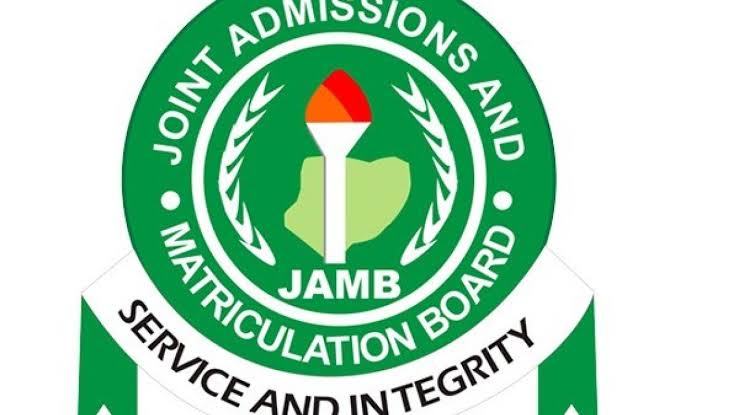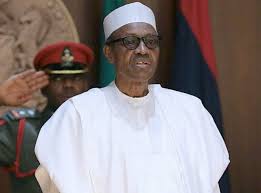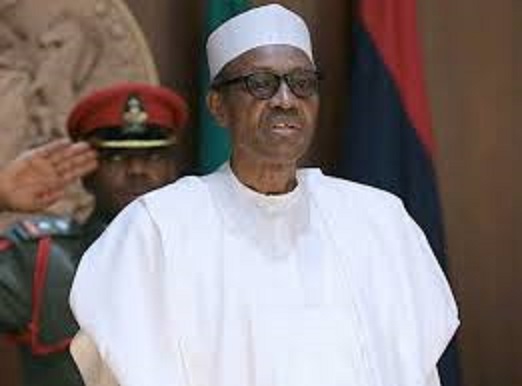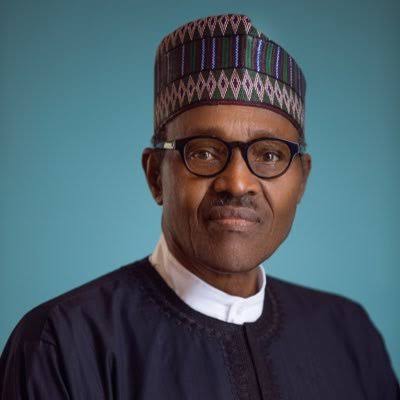Defence/Security
We remain strong, determined in tackling insecurity – Buhari
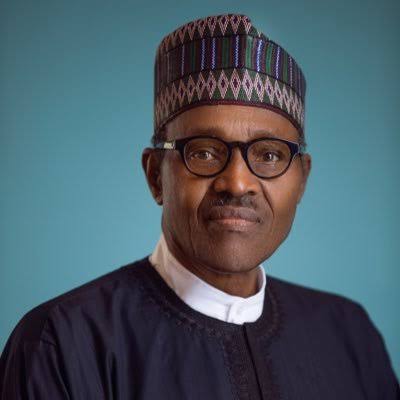
President Muhammadu Buhari says the responses by the Federal Government and security agencies in tackling security threats, have been strong, determined and robust towards enhancing security of lives and property of Nigerians.
Buhari, who was represented by the Minister of Defence, rtf Maj.-Gen. Bashir Magashi, stated this at the graduation of Course 29 participants of the National Defence College, on Friday in Abuja.
He said that government had embarked on a comprehensive multisectoral and cross thematic approach, by strengthening existing structures and initiating new security outfits.
Buhari added that the focus of the government was to promote multi-national, combined, joint and special inter-agency collaborations in their operations.
He said government also focused on non-kinetic actions centred on humanitarian efforts to reduce the distress of the people and improve human conditions.
According to him, some of the measures include disarmament, demobilisation and rehabilitation as well as deradicalisation programmes, political reconciliation measures and instruments of development intervention.
“Although the nation is still grappling with the challenges of terrorism, banditry, kidnapping, farmers and herder clashes and militancy.
“The responses by my government and security agencies in tackling these threats have been strong, determined and robust in order to enhance security of lives and property of Nigerians.
“We consolidated the peace in the Niger Delta and recovered vast territories overtaken by terrorists in the North East.
“We are making continuous efforts at consolidating the progress made in improving the enabling security environment for peace and development,” he said.
The president however, saluted the gallant men and women of the Armed Forces of Nigeria who daily risk their lives to make the nation safe.
He assured the troops that their sacrifices would not be in vain.
He commended the personnel of the Nigeria police, intelligence and security agencies as well as local vigilante and community groups for their patriotic and humanitarian sacrifices.
The president said that recent events have shown that, the country yet to be where it should be in the North East and in some other parts of our dear nation.
He said that all hands will continue to be on deck to make Nigeria a safer place to live.
“In spite of all of these challenges, our faith in the nation is unshaken.
“Our resolve and will to take the nation to greater heights remains strong.
“My government’s collective effort is to leverage technological innovations to deliver the dividends of democracy for national development.
“For the graduands of Course 29, you are graduating at a time when the values acquired in the College are most needed.
On his part, the Minister of Defence, Magashi, urged the participants of the course 29 to deploy the knowledge they had acquired in the last 11 months to solving the nation’s security challenge.
He added that the strategic leadership and policy management knowledge they had acquired, had positioned them better to proffer solutions to the various challenges confronting the nation.
The Commandant of NDC, Rear Adm. Oladele Daji, said that the broad study theme for Course 29 was the “4th Industrial Revolution and National Development in Nigeria”.
Daji said the course curriculum was reviewed to make it more relevant to the demands of contemporary and emerging security and geo-strategic imperatives in line with best practices.
He added that the course content was implemented 100 per cent through various innovations and ingenuity.
A participant from the Nigerian army, Col. Hassan Hassan, said that the outcome of the researches they conducted during the course would have positive impact on the operations in the North East and North West.
Hassan said that the course had broaden their knowledge on operational activities, adding that new ideas had come into play.
“From my research paper on the operational effectiveness of Nigerian army and equipment maintenance, you will realise that over time, equipment maintenance has been the bane of our back and forth in the North East.
“With what we have gathered in the field, we will definitely add value the existing standards in the field,” he said.
Our correspondent reports that the course, which commenced in September 2020, has 22 participants from the Nigerian Army, 25, from Nigerian Navy and 11 from Nigerian Air Force.
There were 24 participants from Ministries, Departments and Agencies (MDAs) comprising six from Nigeria Police, three each from Department of State Service (DSS), National intelligence Agency (NIA) and Defence Intelligence Agency (DIA) among others.
There were 14 international participants from 10 African countries Niger, Cameroon, Burkina Faso, Mali, Ghana, Cote d’Ivoire, Sierra Leone, Liberia, Republic of Congo and Chad as well as allied counties of Bangladesh, Nepal and Germany.
Defence/Security
Why Christians Are Being Targeted in Nigeria — Majeed Dahiru Speaks

By: Fabian Apechihin
Public affairs analyst, Majeed Dahiru, has weighed in on the reports of targeted killings of Christians in Nigeria, insisting that President Bola Tinubu cannot be accused of religious bias or complicity in the country’s security challenges.
Speaking on Channels Television’s Politics Today, Dahiru said President Tinubu has shown a strong commitment to national security and unity since taking office.
“President Tinubu has not, by any stretch of the imagination, been accused of religious bigotry or having sympathy for Islamist jihadist terror groups,” he stated.
According to him, the president has mobilised the armed forces and other security agencies to combat insurgency and restore stability in violence-prone regions.
Dahiru acknowledged that attacks on Christians in some parts of the country remain worrisome but maintained that there has been visible progress in the fight against terrorism and banditry.
“Absolutely not. You can criticise him for every other thing, but not for religious bias. There is no way he would sit idly as Commander-in-Chief and allow or encourage the killing of Christians,” he added.
His comments follow heightened international concern over alleged religiously motivated killings in Nigeria.
On October 31, former U.S. President Donald Trump described the situation as a “mass slaughter,” warning that Christianity faces an existential threat in Nigeria.
Trump also directed Congressman Riley Moore and House Appropriations Chairman Tom Cole to investigate the reported killings, saying:
“I am hereby making Nigeria a ‘country of particular concern.’ But that is the least of it. When Christians, or any such group, are slaughtered as is happening in Nigeria (3,100 versus 4,476 worldwide), something must be done!”
However, the Nigerian government has dismissed the claims of a “Christian genocide,” insisting that security forces are confronting all forms of criminality without ethnic or religious bias.
Defence/Security
Genocide Allegations: Group Urges Tinubu to File Treason Charges Against Nigerians Who Reported Country to Trump

By: Fabian Apechihin
The National Patriotic Elders for Peace and Harmony of Nigeria (NPEPHN) has called on President Bola Tinubu to file treasonable felony charges against Nigerians who allegedly reported cases of Christian massacres to the United States government.
In a statement issued on Friday, the group’s president, Dr. Bature AbdulAziz, condemned the actions of those he described as “unpatriotic elements”, insisting that their reports to foreign powers amounted to a betrayal of national sovereignty.
“Nigeria is a sovereign nation with adequate laws to address the concerns of its citizens,” AbdulAziz said. “Reporting the country to another nation is nothing short of treasonable felony, and those responsible must be prosecuted.”
The elders also urged Northern governors to urgently convene a regional security meeting involving religious and ethnic leaders to address the recurring violence in the region and to present verified data on casualties to counter “false narratives” being circulated internationally.
According to AbdulAziz, the silence of Northern leaders amid U.S. President Donald Trump’s threat of military intervention in Nigeria was unacceptable. He advised them to compile accurate records of attacks and present factual evidence before relevant authorities.
“The claim that over 500,000 Christians have been killed must be supported with verifiable data,” he said. “The U.S. government knows that most of the victims of insecurity in Nigeria are Muslims, not Christians.”
Citing data from various conflict-prone regions, AbdulAziz maintained that 75 percent of victims of terrorism and communal violence since 1999 have been Muslims, noting that most of the affected areas — including Kaduna, Zamfara, Kebbi, Sokoto, Kano, Jigawa, Bauchi, Borno, and Yobe — are predominantly Muslim communities.
“These are the towns and villages that have been burned, destroyed, and displaced repeatedly,” he added.
While acknowledging that parts of the North Central zone — including Benue, Plateau, Taraba, and Kwara — have a higher Christian population, AbdulAziz said most of the conflicts in those states stem from farmer-herder clashes, where both sides suffer heavy losses.
“In many cases, Muslim herders are attacked and displaced by host communities. Their families and livestock are killed, yet no one talks about those casualties,” he noted.
AbdulAziz faulted the U.S. government for allegedly accepting “false genocide claims” without conducting independent investigations.
“It is shocking that the United States would believe such fabrications despite its advanced intelligence systems. We suspect there is a hidden political motive — possibly linked to Nigeria’s stance on the Israel-Palestine issue at the United Nations, or our government’s growing alignment with France and other nations,” he alleged.
The elder statesman reminded Donald Trump of Nigeria’s historic role in promoting peace and democracy across Africa.
“Any attack on Nigeria would destabilize several African nations that depend on her strength. We therefore appeal to President Trump to reconsider his decision,” AbdulAziz stated.
The group reiterated its support for President Tinubu’s administration and urged Nigerians to unite in defending the country’s sovereignty from “external manipulation and internal sabotage.”
Defence/Security
Retired ACP Sheriff Rabiu Blasts Northern Clerics Over Hate Preaching, Almajiri Menace

By: Fabian Apechihin
A retired Assistant Commissioner of Police, Sheriff Abubakar Rabiu, has sparked nationwide debate with a hard-hitting open letter accusing some Northern Islamic clerics of fueling division and violence through incendiary sermons.
The strongly worded message, which has gone viral across WhatsApp groups, mosque forums, and security networks, condemned what Rabiu described as the “toxic preaching culture” that has poisoned the minds of Northern youths and laid the foundation for extremist movements like Boko Haram.
“Nobody has the key to Jannatul Firdausi except Allah,” Rabiu wrote. “Yet any Tom, Dick, and Harry with shallow knowledge of Islam grabs a microphone and calls our Christian brothers ‘Arna’, ‘Kafurai’, or ‘infidels destined for hell’. This is not Islam. This is madness — and this madness gave birth to Boko Haram.”
Rabiu, who once served as Chief Security Officer to former Adamawa Governor Murtala Nyako, said Nigeria’s greatest internal threats are hate preaching and the Almajiri system, which he described as a breeding ground for radicalization.
“An idle mind is the devil’s workshop. Those street children begging today are tomorrow’s recruits and foot soldiers for every terrorist group promising paradise for killing ‘infidels’,” he warned.
Turning his criticism inward, Rabiu questioned why Northern leaders were quick to blame Donald Trump for placing Nigeria on a religious freedom watchlist while ignoring the behaviors that justified it.
“Instead of shouting that Trump is Islamophobic, let’s ask ourselves why America put us on that list,” he said. “In Saudi Arabia, Qatar, or the UAE, try preaching hate from a pulpit — you’ll be arrested the same day. But here in secular Nigeria, they insult Christians from Friday to Friday and nobody stops them.”
Rabiu urged President Bola Tinubu to take decisive action by directing the National Assembly, Northern governors, and local government councils to enact and enforce laws criminalizing:
- The use of derogatory religious labels like arne or kafir
- Street begging by children under the Almajiri system
- Hate speech disguised as preaching
“Do this sincerely,” he cautioned, “and America will see that we are serious. Fail, and we invite the same war machinery that turned Afghanistan and Iraq into graveyards.”
The retired officer ended with a nostalgic appeal for unity:
“If we implement these measures, Nigeria will return to the peace we had in the 1970s — when Muslims and Christians drank from the same cup, married each other’s sisters, and buried each other’s dead.”
By Thursday evening, Rabiu’s open letter had been shared in over 40 Northern WhatsApp groups, drawing support from youth leaders and religious moderates alike.
A community leader in Kano’s Hotoro suburb said, “This is the first time a respected Muslim officer has spoken this boldly. If our governors ignore him, they are the real enemies of Islam.”
Although the Kano Hisbah Board declined to comment officially, a senior commander who spoke off record admitted, “Mallam Sheriff said what many of us whisper privately. The question is — who will bell the cat?”
As Northern Nigeria grapples with rising tension over the message, one fact remains clear: a retired police officer has drawn a bold red line against radical preaching — and the ripple effect may reshape the region’s religious discourse for years to come.
-

 Uncategorized5 years ago
Uncategorized5 years agoFG, states urged to harness flooding for ranching, others with technology – Agbaje
-

 Headlines10 years ago
Headlines10 years agoBreaking: EFCC seals Borno House of Assembly, as Hon members take to their heels
-

 News12 years ago
News12 years agoNigeria Security Operatives Stage Manhunt For Homosexual Perpetrator
-

 News9 years ago
News9 years agoHow 21-year-old Girl fled community over accusation of lesbianism
-

 News10 years ago
News10 years agoYobe Gov Moves Against Deputy
-

 Opinion7 years ago
Opinion7 years ago7 signs she has friend zoned you
-
Technology4 years ago
Online job placement company headhunts women
-

 Headlines10 years ago
Headlines10 years agoBorno Dep Gov Abducts Another Church Leader

